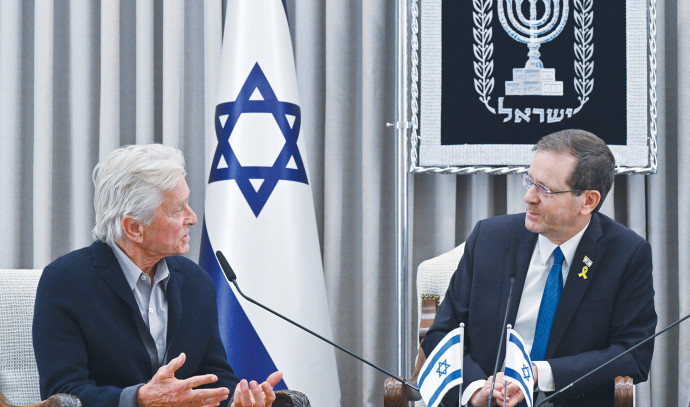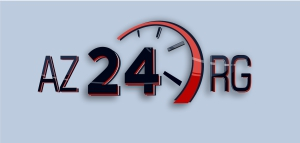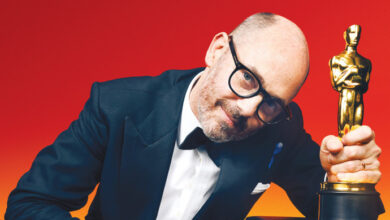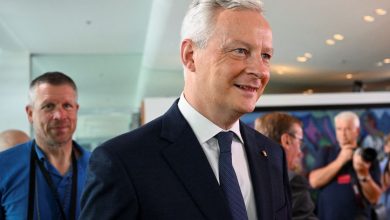Grapevine June 5, 2024: Happy Jerusalem Day

Jerusalem Day, like many other festive occasions in Israel, extends way beyond a single day. It’s not just because the Jewish calendar is a lunar one, meaning that every festival starts the night before. It’s just that Jews have suffered so much persecution over the centuries that when there’s cause for celebration, there’s a tendency to stretch out the festivities.
In most Jerusalem synagogues, Jerusalem Day started either last Friday night or on Saturday morning. At Hazvi Yisrael, in the capital’s Talbiyeh neighborhood, Yehiel Zelinger, from the Israel Antiquities Authority, gave an interesting lecture on the borders of Jerusalem.
In the late afternoon, at a buffet meal for congregants, Rabbi Nechemia Steinberger of the Hebrew University told a little known story about the blowing of the shofar at the Western Wall soon after Israeli troops, headed by Motta Gur, arrived there, and Gur announced: “The Temple Mount is in our hands.”
Rabbi Shlomo Goren, who was then chief rabbi of the Israel Defense Forces, rushed to the scene, shofar in hand. But contrary to all the photographs taken by the late David Rubinger and subsequently published throughout the Jewish world, Goren was not the first to blow it at the site. He experienced the nightmare of anyone designated to blow shofar on Rosh Hashanah. He pursed his lips, brought the shofar to his mouth, but no sound emerged.
Standing nearby was a young kibbutznik, a commander of a Paratroopers battalion, who said to Goren, “Let me try,” and sure enough he blew a pure sound.
Although Steinberger did not mention the name of the kibbutznik from Tel Yosef, one person in the room knew it and said “Uzi Eilam.”
Indeed it was, and part of the reason that Eilam could blow the shofar was that he played trumpet.
After Eilam succeeded, Goren got very excited, grabbed the shofar from Eilam’s hand, and this time was successful in blowing it himself.
Steinberger thought that there was something symbolic in the fact that a young, irreligious kibbutznik had been the first to blow the shofar at Judaism’s holiest site, following the reunification of Jerusalem, proving that, in effect, the Western Wall is part of the heritage of all Jews of all denominations.
Returning to Jewish roots
ACADEMY AWARD-winning actor Michael Douglas, though not halachically Jewish, considers himself to be a member of the tribe because his father, Kirk Douglas, born Issur Danielovitch, was Jewish. His mother, Diana Dill, was not. But Michael was quite close to his Jewish relatives, and actually bears a striking family resemblance to his Israeli cousin Ruvik Danilovich, who happens to be the mayor of Beersheba.
Ten years ago, Douglas and his wife, Catherine Zeta-Jones, brought their son, Dylan, to Jerusalem for his bar mitzvah. Dylan went to Hebrew school to study his Torah portion, and because he was interested in his Jewish roots, took to wearing a Star of David necklace.
Michael Douglas, who has been featuring October 7 images and post-October 7 developments (or lack of them) on his social media accounts, is currently in Israel on a solidarity visit, and before going South to survey the damage for himself, met with families of the hostages and with President Isaac Herzog.
The two discussed the war, the massacre, and the negative attitudes toward Israel, which Herzog cannot fathom in view of what Israel has given to the world. Douglas said that the whole situation has left him in deep shock.
He was just happy to be in Israel, to show support, and to share the fact that America is Israel’s ally. He expressed the hope that negotiations would soon be resumed and that the hostages would soon be home.
SOMEONE WHOM the president meets almost daily is Larry Wachsman, the gabbai of the synagogue in the grounds of the presidential complex. The synagogue was a gift by American philanthropist Ira Rennert, who has given a lot to Israel in general and Jerusalem in particular.
The synagogue was inaugurated on October 7, 2001, and will in all probability be the scene of a memorial service on October 7, 2024, to commemorate the first anniversary of the victims of the Hamas massacre.Although such a service might ordinarily be held in accordance with the Hebrew calendar date, in Jewish tradition mourning is set aside on Jewish holy days – in this case Simchat Torah. Aside from that, October 7 has become the code word for the horrific assault, and is now ingrained in the Jewish psyche.
Wachsman has been the gabbai at the presidential synagogue for 20 years. Strictly speaking, a gabbai is a treasurer, but in most synagogues he’s the chief cook and bottle washer, meaning that he’s the one who arranges religious and social events, takes care of the finances and the maintenance, and is the person responsible for unlocking and relocking the building.
Most of the people who turn up at the early morning services at the presidential synagogue have been doing so for a decade and more. When it was realized that Wachsman had been the gabbai for 20 years, a proper certificate was prepared in honor of the occasion. It was decided that one of the congregants should sign it in the name of all the others.
As President Herzog, contrary to his two immediate predecessors, is a regular congregant, he was asked to sign – and did so willingly. Needless to say, the certificate has been framed and is on view in the Wachsman family living room.
IT’S RATHER sad that the nicest and most positive things that are said about anyone are usually expressed when that person is no longer living. How former foreign minister David Levy, who died this week, would have enjoyed hearing all the plaudits that were uttered about him in death compared to the humiliation, insults, and barbs to his dignity that were hurled at him in life.
Levy, who was born in Morocco, came to Israel in 1957 and, like the overwhelming majority of immigrants from North African countries, was sent to live in the most primitive conditions in a development town. In his case, it was Beit She’an, where he became a construction worker, who was not only proficient with his hands, but who also had a powerful gift for oratory.
From being a union leader, he moved into politics, and became one of the very few North African politicians to be given a ministerial portfolio – a factor that caused great unhappiness among his Likud colleagues not because he was unsuitable, but because he was not Ashkenazi. In those days, the feeling of Ashkenazi superiority and its accompanying attitudes bordered on racism.
Insufferable jokes were made at his expense, implying that he was the village idiot when in fact he was exceedingly intelligent and a farsighted visionary.
Because it was expected of ministers to know several languages, it was assumed that Levy knew only his native Moroccan Arabic, Hebrew, and possibly French. He was fluent in all three and had a good understanding of English, which he could also speak, but perhaps not well enough to deliver a speech.
When he was housing and construction minister, he visited the US, and the Foreign Ministry refused to provide him with a translator. Michael Jankelowitz, the Jewish Agency’s legendary spokesman emeritus to the foreign media, was an emissary in America at the time, and received a message to accompany Levy and act as his translator. He’d never done anything like that before, and he demurred, but orders are orders.
As it happened, he and Levy immediately hit it off and had a good working relationship. Some years later, when Levy again traveled to the US, this time as foreign minister, the Foreign Ministry was only too happy to provide him with a professional translator. But Levy declined, saying he had his own man, and took Jankelowitz with him.
At one stage, Jankelowitz apparently misunderstood what Levy had said, and translated incorrectly. Levy immediately picked up on the mistake, and told Jankelowitz, “That’s not what I said.” So much for his lack of English.
Jankelowitz thought very highly of Levy, not just because of their relationship but because Levy always made sure that his security detail was well fed. He also never forgot where he came from, and even after reaching the peak of his career did not move away from Beit She’an or the friends of his youth.
Former president Reuven Rivlin, who was one of the few Ashkenazim who recognized Levy’s potential, and who befriended him during their Knesset days, described him as “a born leader.”
THERE ARE always some Israelis at the annual Israel Day parade along New York’s Fifth Avenue. This year, Israel’s Eurovision Song Contest heroine Eden Golan joined the UJA float. Moreover, there were more than the usual Israelis, as the marchers included relatives of Israeli hostages held in Gaza, and Israeli participants in two conferences organized a day apart, with several of the same speakers from among the diplomats, ministers, and mayors.
The Jerusalem Post Annual New York Conference included World Jewish Congress President Ronald Lauder, who is a former US ambassador, David Friedman, a former US ambassador to Israel, Gilad Erdan, Israel’s permanent representative to the United Nations, Michael Herzog, Israel’s ambassador to the US, and Ofir Akunis, Israel’s consul-general in New York.
Friedman, Erdan, and Akunis also appeared at the B’Sheva conference, which, though it featured a lot of speakers, could not compete with the number at the Jerusalem Post Conference, which was decidedly more bipartisan from both an Israeli and American perspective, though, aside from the diplomats, there were other speakers who appeared at both.
The two conferences were almost by way of swan songs for Erdan and Herzog, who are due to return to Israel in the summer.
When Erdan first arrived in the US with his family, he was both ambassador to the US and permanent representative to the UN. After a year, he asked to leave the Washington post, and Herzog was appointed ambassador to Washington.
But Herzog and Prime Minister Benjamin Netanyahu are at odds on certain issues, so Herzog’s tenure was not extended. Erdan was willing to resume the ambassadorship, but conditionally. Two of his children attend a Jewish day school in New York, and he did not want to disrupt their studies. So he asked for one residence in Washington and another in New York. The accountant-general refused to approve the additional expense, so Erdan decided to come home.
According to KAN 11’s political and diplomatic reporter Michael Shemesh, Erdan’s two older children are due to begin their army service next year, and given the situation in the region, Erdan and his wife did not want to be on the other side of the world while their children were in the army.
Meanwhile, Erdan tweeted how exciting it had been for him and his family to join the solidarity march for Israel along Fifth Avenue.
THE ISRAEL Embassy in Tokyo last Friday launched a project by Japanese artist Makoto Tanaka, who had produced a comic book that tells the story of Noa Argamani and the other hostages in captivity in Gaza. At the time, it was thought that there were 125 other hostages, but since then the remains of some of the victims who were thought to be in Gaza were found in Israel.
The comic book, with texts in Japanese and English, calls for the immediate release of all the hostages.
Initiated in December last year, when a representative group of families of the hostages were expected to arrive in Japan, the project, under the title “Bring Them Home,” was conceived with the aim of raising awareness of the horror of abducting individuals and family groups from their homes and taking them to Gaza. It was hoped that the project would strengthen the solidarity of the Japanese people with the families of the victims and with Israel in general.
JAPAN’S NEW ambassador to Israel, Arai Yusuke, hit the ground running. After just over a month in the country, and without yet presenting his credentials, he was already hosting families of hostages who are still being held by Hamas and its cohorts in Gaza. It may take him a little longer to find Holocaust survivors for whom Japan provided a temporary haven, even though Japan was fighting the Allied Forces.
Other ambassadors who have been in the country longer have been meeting with families of the hostages but also with Holocaust survivors and their families.
Danish Ambassador Thomas Winkler recently hosted Danish Holocaust survivors plus a group of young people for whom he screened survivor testimonies. Aside from the emotions they felt in reaction to hearing the stories, says Winkler, it was quite a shock for them to realize that the people who gave the testimonies were sitting in the same room with them.
ON FRIDAY, June 7, Czech Ambassador Veronika Kuchynova Smigolova will host an event under the title “When Memory meets Art: Terezin 1944-2024, 80 years of history and remembrance.” Participants will include Terezin survivor Ester Ringlerova, Daniel Shek, chairman of the Beit Terezin Association, and Jan Roubinek, director of the Terezin Memorial in the Czech Republic.
German Ambassador Steffen Seibert has hosted Holocaust survivors on several occasions, and where applicable has restored their German citizenship. He is also a frequent visitor to Hostage Square in Tel Aviv and has spoken at rallies on behalf of the hostages.
It defies logic that Holocaust denial has resurfaced, in view of the number of Holocaust monuments in so many European countries. These are monuments that have been put up by local or federal governments, not by Jewish communities, though some have been financed with the help of Jewish donors.
Part of the problem in combating Holocaust denial is that while witness testimonies of atrocities personally experienced are accessible on numerous Internet sites, they are not widely publicized.
Every Jewish film festival in the world should include testimonies of both Jewish and non-Jewish victims. In addition, the backgrounds of Holocaust deniers with German-sounding surnames should be explored, because in some cases there are records of their parents or grandparents having been Nazis. When such records are made public, Holocaust denial becomes much more difficult.
IN RECOGNITION of her lifelong dedication to promoting the status of women, Orit Sulitzeanu, CEO of the Association of Rape Crisis Centers in Israel, was awarded the 2024 Rappaport Prize for Breakthrough Women.She has served as the CEO of the ARCCI since 2013, and has been a prominent figure in combating violence against women.
Sulitzeanu has more than 20 years of experience in the field of communication, public relations, and managing public crises. With the outbreak of the war, she moved into the international sphere, running information campaigns to heighten awareness of the horrendous sexual crimes committed by Hamas.
Recognizing that the Hamas assault last October was an unprecedented event in the scope of sexual abuse, she initiated the collection and documentation of all the information that reached her organization, and later produced what is believed to be the first report of its kind on the subject, which graphically describes the appalling systematic attacks and the repeated sadistic practices employed by Hamas.
The report, which she presented to UN Deputy Secretary-General Pramila Patten, received widespread international interest and was reviewed around the globe.
REGARDLESS OF age, it’s important to make the most of life while you still have it. Media magnate Rupert Murdoch, 93, got married this week, for the fifth time, to a Russian divorcée who is the former mother-in-law of Russian Jewish billionaire Roman Abramovich, who was married to her daughter Dasha. Murdoch’s bride, Elena Zhukova, is a molecular biologist who was previously married to Alexander Zhukov, a Russian billionaire who has been living in the UK for the past 20 years. Elena happens to be Jewish.
AMBASSADORS AND other diplomats from several countries, including Austria, Australia, Japan, and Thailand, last week attended the opening of the 26th annual Wine Month of the Mateh Yehuda Regional Council and learned about the unique characteristics of Judean wine, named for its place of origin.
IT’s actually a fun thing to be a diplomat in Israel – even in times of crisis, because the diplomatic community gets invited en masse and individually to so many varied events. By the time they complete their tenure, ambassadors have had so many different experiences that they know more about Israel than most Israelis.
The diplomats along with many public figures joined hundreds of wine enthusiasts in sampling the products of some 30 leading wineries in the Judea region.
Avishai Cohen, the head of the Mateh Yehuda Regional Council, in welcoming all present, said that it is good to be together for a few moments of sanity where crises are a daily reality. He also noted that the wine industry in the region represents some six decades of hard work, plus considerable success in making Israeli wines known to the world.
Participating wineries included: Tzuba, Seahorse, Nevo, Yehuda, Latrun, Kerem Barak, Ella Valley, Raviv, Soreq, Agur, Kadma, Castel, Raziel, Hadary, Mettler, Tzora, Flam, Sphera, Hans Sternbach Vineyard, Tzafririm, Teperberg, Gizo, Mony, Srigim, Rama, Jaffa, Bazak, and Bravado. And that’s only a fraction of all the wineries in Israel.
In several countries abroad, the label on the bottle includes the name of the region with the words “Appellation of Origin.” Israel received official approval in 2020 for including “Judea Appellation of Origin.” It was the first time that a wine-producing region in Israel was officially recognized with an approved map of the region.
The Mateh Yehuda region is known for its many boutique wineries, which produce award-winning wines with a global reputation. The unique climate and excellent terrain are ideal for the cultivation of high-quality grapes and the production of outstanding wines, alongside mouthwatering local food, creating a memorable wine and culinary experience.
In addition, visitors to the region can hear some of the fascinating stories of the owners of the wineries, in which entrepreneurship, agriculture, and pioneering spirit add to the enjoyment of the wines and the food.
Mateh Yehuda Wine Month, which takes place over four weekends in June, offers a variety of events, including professional tours, wine tastings, launches of new wines, special local cuisine, lectures, and workshops.
WHEN OPPOSITION leader Yair Lapid addressed marchers in Jerusalem’s gay pride parade last week, he recalled that when he had addressed them previously it had been in his role as prime minister.
“The State of Israel has regressed since then,” he said, speaking at a dais in the capital’s Liberty Bell Park. “I am here to remind you that love will triumph, and (gay) pride will triumph. This year’s parade is more important than ever, because it is here that we are fighting not only for the continued existence of the state, but for the kind of state in which we want to live and what its values will be.”
A small group of protesters was also present, but there were no serious clashes.
National Security Minister Itamar Ben-Gvir arrived on the scene to see how the police were controlling the crowd and ensuring safety and security, and was greeted by parade participants with boos and cries of “Shame! Shame!”
ISRAELI DIPLOMAT and academic Daniel Aschheim, author of Kreisky, Israel and Jewish Identity, will discuss the complex character of Bruno Kreisky, Austria’s longest-serving and only Jewish chancellor.
A self-proclaimed atheist, Kreisky was over-friendly with Israel’s enemies, but at the same time allowed Jews leaving the Soviet Union to have a safe passage through Austria, and to stay there until they were able to continue on to Israel. He had a brother living in Israel.
The book sheds light on issues of identity, antisemitism, relations between Diaspora Jews and Israel, global leadership, and entangled history.
Aschheim will share his insights in English, on Thursday, June 6, at 1 p.m., at the University of Haifa’s Hatter Student Building, Room 107.





